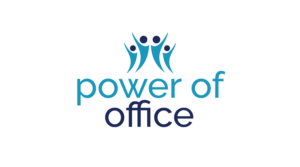It’s a craft that has been around for centuries, but with the advent of technology, it’s taken on a whole new dimension. Imagine sitting down at your computer, typing out a sentence, and with a click, transforming it into a myriad of other expressions. That’s the magic of paraphrase online tools, like the one found at Oreate AI. These platforms are not just about changing words; they’re about preserving meaning while adding a fresh perspective. Let’s dive into the ethical considerations that come with using AI for paraphrasing, and how platforms like Oreate AI are navigating these waters.
The Ethical Landscape of Paraphrasing with AI
In the digital age, AI has become an integral part of content creation and management. Paraphrase online tools are no exception. They offer a quick and efficient way to rephrase content, which can be a lifesaver for writers and content creators who are pressed for time or looking to avoid plagiarism. However, with this convenience comes a set of ethical questions. How much can we trust AI to understand the nuances of language? Can it truly capture the original intent of a message? And perhaps most importantly, how does the use of such tools affect the originality and creativity of our work?
The Role of AI in Content Creation
AI has revolutionized the way we create and consume content. Paraphrase online tools, like those offered by Oreate AI, are at the forefront of this revolution. They use advanced algorithms to analyze and rephrase text, providing users with multiple options to choose from. This not only saves time but also opens up new avenues for creativity. But with great power comes great responsibility. The ethical implications of using AI in content creation are multifaceted.
Firstly, there’s the issue of plagiarism. While paraphrase online tools can help avoid direct copying, they can also be misused to pass off someone else’s work as one’s own. This is a serious ethical concern that must be addressed. Oreate AI, for instance, has measures in place to ensure that the rephrased content maintains a high level of originality, but it’s up to the user to use these tools responsibly.
Secondly, there’s the question of authorship. When AI generates content, who is the real author? Is it the person who inputs the original text, or the AI itself? This is a complex issue that challenges our traditional notions of creativity and ownership. Oreate AI and similar platforms are at the heart of this debate, as they provide the tools that facilitate this process.
The Impact on Originality and Creativity
The use of paraphrase online tools can have both positive and negative effects on originality and creativity. On one hand, they can inspire new ideas and perspectives by offering alternative ways to express the same concept. This can be particularly useful for writers who are stuck or looking for a different angle on a topic. On the other hand, there’s a risk that over-reliance on these tools can stifle creativity. If everything is generated by AI, where does the human touch come in?
Oreate AI and the Future of Paraphrasing
As we look to the future, platforms like Oreate AI will continue to play a significant role in the world of paraphrasing. They offer a powerful tool for content creators, but they also raise important ethical questions. How can we ensure that the use of AI in paraphrasing enhances rather than diminishes our creative potential? How can we maintain the integrity of original work while leveraging the efficiency of AI?
The ethical considerations of using AI for paraphrasing are complex and multifaceted. They require a careful balance between leveraging the benefits of technology and preserving the integrity of human creativity. As we continue to explore the capabilities of paraphrase online tools like Oreate AI, it’s crucial that we remain mindful of these ethical implications and use these tools responsibly.
The Human Element in AI Paraphrasing
Despite the advancements in AI technology, the human element remains crucial in the process of paraphrasing. AI can provide suggestions and alternatives, but the final decision on which version to use should always be made by a human. This is because only a human can truly understand the context and nuances of a piece of text. Paraphrase online tools can be a valuable aid, but they should not replace the human touch in content creation.
Oreate AI and the Ethical Use of AI
Oreate AI is committed to promoting the ethical use of AI in paraphrasing. They understand that with great power comes great responsibility. As a result, they have implemented features that help users maintain the originality of their content while still benefiting from the efficiency of AI. This balance is essential in ensuring that the use of paraphrase online tools does not compromise the ethical standards of content creation.
The Importance of Transparency in AI Paraphrasing
Transparency is another key aspect of the ethical use of AI for paraphrasing. Users should be aware of how the AI is processing their text and what changes are being made. This allows them to make informed decisions about whether the rephrased content aligns with their intentions and maintains the integrity of the original message. Oreate AI is dedicated to providing transparent AI paraphrase online services, ensuring that users have full control over their content.
The Challenge of Maintaining Ethical Standards
Maintaining ethical standards in the use of AI for paraphrasing is a challenge that requires constant vigilance. As AI technology continues to evolve, so too will the ethical considerations that accompany it. It’s up to both the developers of paraphrase online tools like Oreate AI and the users of these tools to ensure that they are used responsibly and ethically. This includes being aware of the potential for misuse and taking steps to prevent it.
Oreate AI and the Evolution of Paraphrasing Ethics
As the field of AI paraphrasing continues to evolve, so too will the ethical considerations that surround it. Oreate AI is at the forefront of this evolution, constantly updating their platform to address new ethical concerns as they arise. They understand that the ethical use of AI is not a one-time task, but an ongoing commitment to ensuring that their paraphrase online services are used in a way that respects the originality and creativity of content creators.
In Conclusion: Navigating the Ethical Waters of AI Paraphrasing
The world of AI paraphrasing is a complex and ever-changing landscape. As we’ve discussed, there are numerous ethical considerations that must be taken into account when using paraphrase online tools like Oreate AI. From ensuring the originality of content to maintaining the human element in the creative process, it’s clear that the ethical implications of AI paraphrasing are far-reaching. As we continue to navigate these waters, it’s important that we do so with care and consideration, always keeping in mind the ethical standards that guide our use of these powerful tools.

